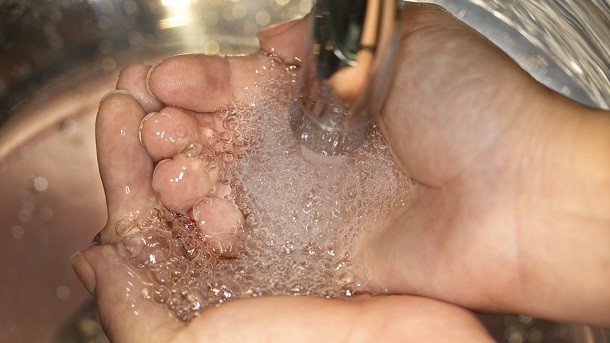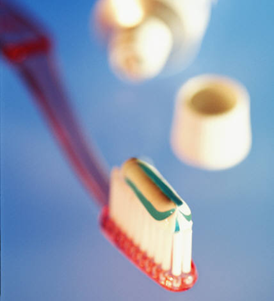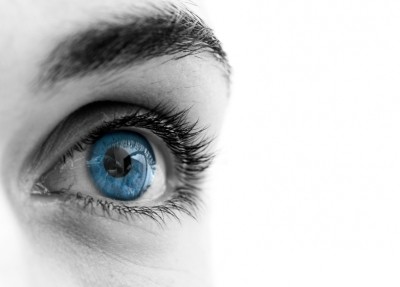New study links triclosan to liver cancer in mice

The study, published in Proceedings of the National Academy of Sciences by researchers at University of California, shows that triclosan causes liver fibrosis and cancer in laboratory mice through molecular mechanisms that the team also say are relevant in humans.
Dr Robert H. Tukey, professor in the departments of Chemistry and Biochemistry and Pharmacology, led the study, together with Dr Bruce D. Hammock, professor at University of California, Davis, and found that triclosan disrupted liver integrity and compromised liver function in mouse models.
"Triclosan's increasing detection in environmental samples and its increasingly broad use in consumer products may overcome its moderate benefit and present a very real risk of liver toxicity for people, as it does in mice, particularly when combined with other compounds with similar action," says Tukey.
No need to panic
However, there is no need for people to panic too much at this stage and stop using cosmetics products which are still completely safe to use in Europe, according to the Cosmetics Toiletry & Perfumery Association.
Director General Chris Flower informs CosmeticsDesign-Europe.com that products are still safe to use, but the study is not being dismissed and that industry is looking further into the situation to assess its relevance to human safety.
"The current study in mice is interesting but it is too early to say whether it adds anything to the safety evaluation of triclosan as used in everyday life,” says Flower. “The full details of the study must be looked at by experts and placed into context.”
“Given the known differences between species, this study should not be taken in isolation and certainly there is no need to believe that the decisions taken by regulatory bodies across the world to accept triclosan as safe and effective are incorrect. Consumers can continue to use products containing triclosan in safety."
Mice study
In the UC study, mice exposed to triclosan for six months (roughly equivalent to 18 human years) were more susceptible to chemical-induced liver tumors. Their tumors were also larger and more frequent than in mice not exposed to triclosan.
The study suggests triclosan may do its damage by interfering with the constitutive androstane receptor, a protein responsible for detoxifying (clearing away) foreign chemicals in the body.
To compensate for this stress, liver cells proliferate and turn fibrotic over time. Repeated triclosan exposure and continued liver fibrosis eventually promote tumor formation.
"We could reduce most human and environmental exposures by eliminating uses of triclosan that are high volume, but of low benefit, such as inclusion in liquid hand soaps," Hammock says.
"Yet we could also for now retain uses shown to have health value -- as in toothpaste, where the amount used is small."
Industry associations in Europe are looking into the study in full before making any official announcements on how this study will affect the cosmetics market.



![YSL's LoveShine launch has sparked a demand surge in Japan. [YSL]](/var/wrbm_gb_food_pharma/storage/images/_aliases/wrbm_tiny/publications/cosmetics/cosmeticsdesign-asia.com/article/2024/04/24/ysl-loveshine-launch-propels-lip-gloss-sales-to-record-highs-in-japan-since-2020/17372064-1-eng-GB/YSL-LoveShine-launch-propels-lip-gloss-sales-to-record-highs-in-Japan-since-2020.jpg)
![There is significant scope for innovation and new launches in the hair repair sector, especially in soaring markets such as China. [Getty Images]](/var/wrbm_gb_food_pharma/storage/images/_aliases/wrbm_tiny/publications/cosmetics/cosmeticsdesign-asia.com/article/2024/04/24/croda-zeroes-in-on-hair-repair-solutions-as-damage-hair-concerns-surge-in-markets-like-china/17362731-1-eng-GB/Croda-zeroes-in-on-hair-repair-solutions-as-damage-hair-concerns-surge-in-markets-like-China.jpg)



![Lubrizol has extended its partnership with C-beauty major PROYA. [PROYA]](/var/wrbm_gb_food_pharma/storage/images/_aliases/wrbm_tiny/publications/cosmetics/cosmeticsdesign-asia.com/headlines/brand-innovation/lubrizol-bullish-on-potential-of-c-beauty-growth-potential/17362515-1-eng-GB/Lubrizol-bullish-on-potential-of-C-beauty-growth-potential.jpg)

![Amika is targeting localised innovation to drive success in SEA. [Amika]](/var/wrbm_gb_food_pharma/storage/images/_aliases/wrbm_tiny/publications/cosmetics/cosmeticsdesign-asia.com/headlines/brand-innovation/amika-on-quest-to-address-diverse-hair-needs-in-sea-with-sea-buckthorn-range/17339003-1-eng-GB/Amika-on-quest-to-address-diverse-hair-needs-in-SEA-with-sea-buckthorn-range.jpg)